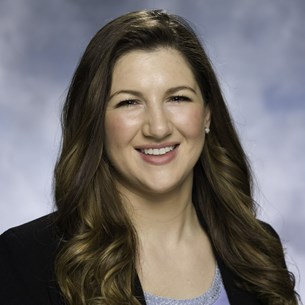Meeting
2023 ASCO Quality Care Symposium

Rutgers-Robert Wood Johnson Medical School, New Brunswick, NJ
Brooke Elizabeth Kania, Sharan Kapoor, Bhoomika Kamath, Muhammad Hamza Hamza Habib, Biren Saraiya
Background: Effective patient-physician communication plays a vital role in providing care. Improved patient satisfaction and reduced burnout are among the many benefits of effective communication. Medical training in this area through didactic lectures, group discussions, and role play with feedback can facilitate better acquisition and honing of communication skills. We aimed to create a longitudinal training program assisting residents in developing communication skills. Methods: Internal Medicine (IM) residents participated in a 6-month project as part of their training. Residents completed a baseline questionnaire to assess confidence in communication skills, followed by a curriculum comprised of 3 x 1-hour sessions every 5 weeks where expert lecturers guided didactics on pertinent topics (e.g., delivering bad news, discussing goals of care (GOC), and completing a Practitioner Orders for Life-Sustaining Treatment (POLST)). Participants completed post-session surveys after each training, and a comprehensive post-training self-assessment. Comfort level was assessed on a 1-5 scale (1 least comfortable, 5 most comfortable) throughout the surveys. Results: Pre-intervention, most residents utilized “Ask, Tell, Ask (ATA)” (46.67%) and “Setting, Perception, Invitation, Knowledge, Emotion, Summarize (SPIKES)” (40%) frameworks to facilitate conversations with patients. Post-intervention, a greater number of residents utilized SPIKES (52.08%) compared to ATA (37.5%). 1st (PGY1) and 2nd (PGY2) year residents reported completing +25.71% and +60% more POLST forms post-intervention. In the inpatient (IP) setting, resident comfort levels in initiating GOC increased by +15.8% (for PGY1s) and +6.7% in total (all classes). Comfort levels in breaking bad news to patients in the IP setting increased by +9.09% (+24.14% for PGY1s specifically). PGY2s had the most substantial increase in comfort level in completing POLST forms (+21.08% IP, +31.52% outpatient (OP)), with an overall improvement in comfort from all classes of +12.32% (IP) and 12.53% (OP) post-intervention. Conclusions: This curriculum represents a helpful tool to improve physician-patient communication among IM residents. PGY1s demonstrated the most substantial improvement in confidence following the program, which may indicate the importance of prioritizing training for first year residents. Qualitative feedback from residents included distributing sessions throughout the year (beginning, middle, end), holding sessions in the intensive care unit (ICU) for applicability to patients in real-time, and continued instruction of practical skills. These findings may allow for future curriculum planning to help bolster trainee confidence and skills when facilitating meaningful conversations with their patients.
Disclaimer
This material on this page is ©2024 American Society of Clinical Oncology, all rights reserved. Licensing available upon request. For more information, please contact licensing@asco.org
2023 ASCO Quality Care Symposium
Poster Session
Poster Session A
Quality, Safety, and Implementation Science,Cost, Value, and Policy,Patient Experience,Survivorship
Quality Improvement Research and Implementation Science
JCO Oncol Pract 19, 2023 (suppl 11; abstr 428)
10.1200/OP.2023.19.11_suppl.428
428
J10
Abstract Disclosures
2018 ASCO Annual Meeting
First Author: Nina A. Bickell
2023 ASCO Annual Meeting
First Author: Jamie S. Ostroff
2022 ASCO Annual Meeting
First Author: Aidan Pucchio
2023 ASCO Annual Meeting
First Author: Michael J. Hall